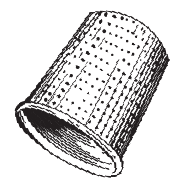The first question I ask everyone who visits my house is Can you hear the ocean? But what I want to know is What do you hear of the ocean? Do you hear the booms of crashing waves, at once a collision in white and a coalescence of blue? Or gasping; the straining of great tides against time? Do you hear whispers, the constant shushing shhhh of waves, fingertips to lips? Or stranger still, do you hear the silence that lingers many miles deep and many more miles out? Do you hear a boat’s bells dinging, or the laughter of children, or the salt-water cries of the drowned, or your mother’s voice calling you in from shore? Do you hear it … That blue with no horizon, that shapeless sea of weltering waters that holds all the mysteries of how light turns to shadow, how blue becomes black?
I have to ask. Everyone hears something different. Often, I don’t need to say anything. Someone will walk in, pause in the vast silence of enormous sound, and say The ocean is so loud! It sounds louder in here than it does outside. And they are right. From the front, my house appears to be a small one-story-pale-yellow mock colonial, white shutters and a dark shingled roof, perched like an American Goldfinch in the dense greenery – mostly Pitch Pines and White Oaks, with a few scattered Sweet Ferns and several persistent patches of Saltgrass – that surrounds it and obstructs the view of the ocean. The ocean appears as a small sliver of blue horizon just visible above the little house where there is a slight break in the foliage, and just the same, its sound is swallowed up by the obstructions.
However, inside, my house is almost entirely empty. Among its three rooms, I have almost no furniture or decorations. In the ‘ocean’ room (living room, bedroom, and dining room in one): a bed with one blue and white blanket, a small red couch, a ceramic ashtray embossed with a golden crab, a low table made from an old ship’s wheel, a small collection of sea glass on the mantle of the unused fireplace. No pillows, no photos, no cards from relatives. No vacuum cleaner, no shelf of games or clutter, no books. In the kitchen: various pots and pans, a trash can, an oven and two-burner stove top, a mini fridge, a sink, and forks and such tucked in drawers. No cutting boards, no bowls for fruit, no microwave, no coffee machine, no cabinets, no bread box. In the bathroom: what you would expect, a mirror, and a single sun-bleached seashell. No floor mat and no shower curtain. All the walls are whisper white, the trim a faded navy. The house itself, quiet and spare, leaves room for the ocean.
I know it is a strange house. It was like this when I arrived six years ago: de-furnished, but uproariously loud. I have since lost all the fresh energy of the ocean’s sound, but I remember how I described what I first heard to my sister. I told her that when I walked in, my heart felt so large beneath my fragile ribs, as if it were taking over my body. I felt its every movement as if I held it in my hands. As it beat, its music merged with the crackling static of crashing waves and the soft sighing of the sinking undertow. The more I listened, to my heartbeat and the ocean undulating in unison, the more I saw, images bubbling up in my mind and popping. I could see the shore’s white foam breaking in soft explosions. I could see the bottom of the sea, sand twisting up into clouds as alien creatures ran along the ocean floor. I imagined I could see hundreds of miles out. The sound of the ocean painted for me the image of a rowboat way out somewhere. It was lulling in nascent waves, just formed in the middle of the sea. In the boat, a man was crying loudly over the side, his tears dropping into the water, each rippling out and giving birth to a gentle rolling wave. The man seemed to be crying out all that was inside him, filling up the sea. I could see his face in the sound of the waves.
I had only planned to stay a few weeks – just long enough to get the property in order and sell it, a property which had been willed to me by my agoraphobic neighbor who himself had inherited it from his widowed-sea-captain uncle. But I found I could not leave. Each attempt I made was a painful and futile exercise in absence: the farther I got from the ocean and the quieter it became as I closed the front door, walked down the gravel path, biked into town, stood inside the train station folding my ticket into an origami bird as I waited, the more the waves called me back. The farther out I pushed myself the greater was the force that pulled me in, just how a cresting wave creates its undercurrent, that countervailing flow.
From the train platform, I would dream I could still hear those blue whispers. So the train would come and go without me. I would already be back at the house, having biked there as fast as I could, gasping in time with the waves.
For months I could not escape that image of the little boat and the man. I was arrested by the idea that his tears made the ocean and that with every weep he was washing himself farther out to sea. I would stand by the white door at the back of the house overlooking the water. I would leave it open and listen, waiting for more news of that little boat and its sorry passenger. But it never came. I have since forgotten his face.
But mine is hardly the strangest reaction I’ve witnessed.
A young man – who I invited over after we exchanged a cigarette for a light in the parking lot behind The Lobster Bucket – stood at the back door and told me he heard the earth moving.
On its axis or going around the sun? I asked, laughing.
He stopped to think. I thought he had been joking, but he closed his eyes and listened, gazing blindly out over the waters. He started swaying, rocking with each crest and fall. I watched his weight shift between his feet. I looked out over the ocean, hoping to borrow the sound he heard, the sound that literally moved him. That night there were no stars, just one large moon. The ocean would have been indistinguishable from the sky, the depth of the sea matching that of the cosmos, if not for the moon painting highlights on the water. Nights like that seem to prove everything I think about the sea.
On its axis, he said finally, pushing his eyes open. He wavered and fell towards me, still caught in the sway of the currents. I steadied him, grabbing his shoulders. My skin rippled at the contact. I was suddenly very aware of the shape and set of my jaw and the coldness of the air between us. He seemed heavy against my palms, though his body was slight. He stepped in closer and rested against my chest, his hand on my neck. I worried he could hear how hard my heart was beating.
I’m sorry, he said with a soft laugh. I felt his body tense as if to pull away, but he didn’t move.
It’s alright, I said, although I didn’t understand why he was sorry. He began to sway in my arms. We rocked together for a while, until he looked up at me, the moon and sea rushing in his eyes.
I’m quite tired, he said, so I took him to bed.
An equally young, though less interesting, woman, whom I had watched bargain down the price of a pint of fresh strawberries from a local farm stand, told me she heard nothing. We talked about that nothing for quite a while, sitting on the floor on opposites sides of the wheel table eating asparagus and shrimp cocktail with our hands by candlelight, until she broke down crying. I hear it! I heard it all along! she admitted. She stood up and walked to that small door at the back of the house, the tears gone from her eyes. Of course I hear it, she said, defeated. She paused and I saw something like anger, like power, swell in her and crash. She screamed out at the water, I hear you, alright? So, stop it! She started crying again – salty tears I imagine – and ran out towards the sea. For a while I heard her relentless cries and the shifting of sand under her feet.
I went to look for her after I finished my asparagus and the rest of her shrimp. The sand was cold, and I curled my uncovered toes as I walked towards the water. In the moonlight, I could see the lines where long dead waves haunted the shore. I pulled out a cigarette and lit it in the darkness. I smoked idly as I glanced through the littoral zone for the woman, but she was nowhere. The ocean had stolen away her footprints.
On the mantle was the pint of strawberries the woman had been buying when we met. I remember how earlier that day I had watched her bargain them from six dollars a pint to just one dollar and a dime. I was drawn to her then, like the tides are by the moon. Not because I found it at all impressive. In fact, I found her negotiation an appalling display of entitlement and disrespect. Plus, I am on good terms with Josie, the local high school girl who works at the farm – she tells me about the boys she likes, local and seasonal, and I tell her not one of them is good enough for her and she always blushes – and I took no pleasure in seeing her nervous and humiliated as the woman yelled about how the strawberries were off color (which they weren’t) and how she could get better elsewhere (which she couldn’t). Still, there was something I loved in that woman’s stubbornness. She was unwavering in her conviction that a pint of strawberries ought to cost her a dollar and a dime. Watching her, I had the sudden breathless fear that I was drowning, and she seemed like a rock amidst heaving waves. Josie blushed as the woman dropped a single dime into the folds of a crumpled dollar and all the while I feared I had been swept out to sea, carried on transient tides; I was lost somewhere deep down or far out, like the man in the small boat, where no one could reach me.
I rooted through the rough wooden punnet on the mantle, the berries dewy against my fingers. At the bottom, I felt an impossibly large strawberry. I searched for the edges, but it was boundless. The strawberry was in fact huge, almost the size of my palm. I tore off the stem, threw it aside, and put the whole thing in my mouth. I chewed and waited for the singular sweetness of ripe summer strawberries, flesh that dissolves and the crunch of tart little seeds. Instead, my mouth was flooded with the stinging taste of salt, as if the berry was bloated to bursting with water from the sea.


